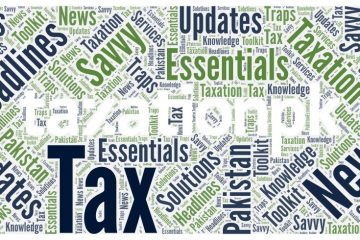Taxation is a key tool for governments to raise revenue and finance public services. However, taxation can also be a complex and challenging process. In Pakistan, there are a number of challenges that make taxation difficult.
One of the biggest challenges is the low tax-to-GDP ratio. In 2020, Pakistan’s tax-to-GDP ratio was just 10.6%. This is well below the average of 15.4% for developing countries. The low tax-to-GDP ratio means that the government has less revenue to finance public services, which can lead to problems such as inadequate healthcare, education, and infrastructure.
Another challenge is the high level of tax evasion. In Pakistan, it is estimated that only about 2% of the population pays income tax. This is due to a number of factors, including a complex tax system, corruption, and a lack of enforcement. Tax evasion deprives the government of much-needed revenue and can lead to economic distortions.
The informal economy is also a major challenge to taxation in Pakistan. The informal economy is the part of the economy that is not subject to government regulation or taxation. In Pakistan, it is estimated that the informal economy accounts for about 60% of the total economy. This makes it difficult for the government to collect taxes from businesses and individuals operating in the informal economy.
Finally, the tax administration in Pakistan is often inefficient and corrupt. This can lead to delays in processing tax returns, errors in tax assessments, and corruption. Inefficient tax administration can discourage businesses from investing and can make it difficult for the government to collect taxes.
The challenges of taxation in Pakistan are significant. However, there are a number of reforms that can be implemented to address these challenges. These reforms include simplifying the tax system, improving tax administration, and cracking down on tax evasion. By implementing these reforms, the government can increase tax revenue and finance essential public services.
How to Improve Taxation in Pakistan
There are a number of ways to improve taxation in Pakistan. Some of the most important reforms include:
- Simplifying the tax system. The current tax system in Pakistan is complex and difficult to understand. This makes it difficult for businesses and individuals to comply with the tax laws. Simplifying the tax system would make it easier for businesses and individuals to comply with the law and would reduce the cost of compliance.
- Improving tax administration. The tax administration in Pakistan is often inefficient and corrupt. This can lead to delays in processing tax returns, errors in tax assessments, and corruption. Improving tax administration would make it easier for the government to collect taxes and would reduce the cost of doing business.
- Cracking down on tax evasion. Tax evasion is a major problem in Pakistan. It is estimated that only about 2% of the population pays income tax. Cracking down on tax evasion would increase tax revenue and would help to reduce the budget deficit.
These are just some of the reforms that can be implemented to improve taxation in Pakistan. By implementing these reforms, the government can increase tax revenue and finance essential public services.







